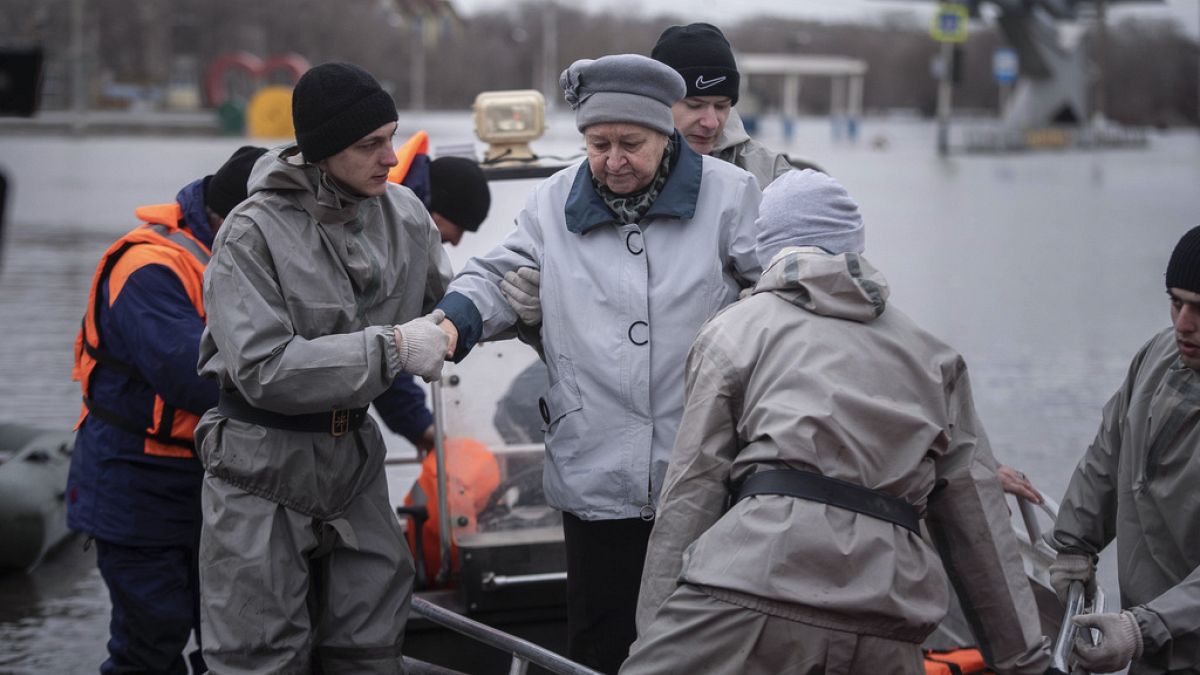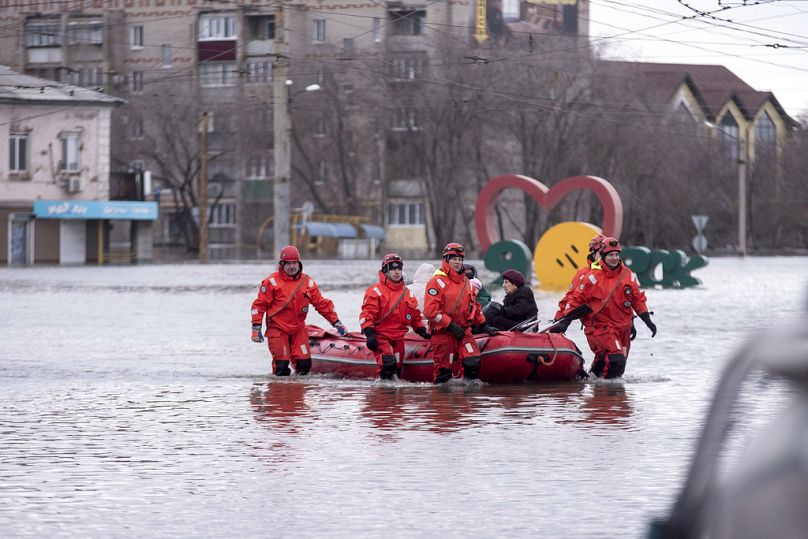
Russians in the city of Orsk protested on Monday, demanding compensation following the collapse of a dam and subsequent flooding in the Orenburg region near the Kazakhstan border.
Protests are rare in Russia where authorities have consistently cracked down on any form of dissent following President Vladimir Putin’s invasion of Ukraine.
Hundreds gathered in front of the administrative building in Orsk Monday, Russian state news agency Tass reported.
Videos shared on Russian social media channels showed people chanting “Putin, help us,” and “shame.”
The floods, caused by rising water levels in the Ural River, forced over 4,000 people, including 885 children, to evacuate in the Orenburg region, the regional government said on Sunday.
Around 10,000 homes, including some 7,000 in Orsk, were flooded in the region, with floodwaters continuing to rise, according to Tass.

Submerged buildings, including homes, and nearby fields were shown in footage from Orsk and Orenburg.
Russia’s government declared the situation in flood-hit areas of Orenburg a federal emergency on Sunday, with preparations for possible flooding underway in three other regions, state media reported.
Following the protest, Tass reported that the governor of the Orenburg region, Denis Pasler, promised compensation payments of approximately 100 euros (10,000 rubles a month) for six months to people forced out of their homes by the flood.
The total damage from the flood in the region is estimated at about 210 million euros (21 billion rubles), the regional government said Sunday.
A criminal probe has been launched to investigate suspected construction violations that may have caused the dam to break. Local authorities said the dam could withstand water levels up to 5.5 metres.
On Sunday, the level in Orsk reached 9.7 metres (31.82 feet), according to Russia’s water level information site AllRivers.
Kremlin spokesman Dmitry Peskov said Sunday that Russian President Vladimir Putin had spoken with the authorities to discuss the situation and “the need … for early adoption of measures to assist people and their possible evacuation.”
The Ural River, about 2,428 kilometres long, flows from the southern section of the Ural Mountains into the north end of the Caspian Sea, through Russia and Kazakhstan.





